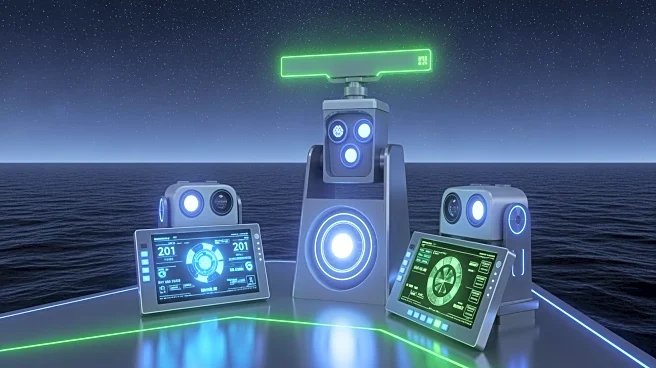What's Happening?
Israeli maritime technology firm Orca AI has introduced Co-Captain, a real-time data-sharing network for ships, described as the 'Waze of the Seas.' This innovation aims to enhance maritime safety by linking
over 1,000 vessels equipped with Orca AI's autonomous navigation platform. The system provides verified alerts on hazards, weather, piracy zones, and more, transforming each vessel into both a sensor and a source of awareness. The launch comes in response to a significant rise in global maritime safety incidents, which increased by 42% between 2018 and 2024, reaching 3,310 reported cases last year.
Why It's Important?
The introduction of Co-Captain is crucial for the maritime industry, where 90% of international trade is conducted via ocean transport. By improving navigational safety and hazard anticipation, the system addresses critical safety, environmental, and security imperatives. The network's ability to share real-time alerts allows vessels to respond more effectively to navigational hazards, adverse weather, and security threats, potentially reducing accidents and enhancing operational efficiency. This development could lead to safer maritime operations and lower insurance costs for shipping companies.
What's Next?
Orca AI plans to expand the Co-Captain network by adding hundreds more vessels. The system will continue to refine its detection models and predictive capabilities, enhancing situational awareness. As more ships join the network, the maritime industry may see a shift towards collaborative navigation, with increased emphasis on safety and environmental protection. Stakeholders, including shipping companies and regulatory bodies, are likely to monitor the system's impact on maritime safety closely.
Beyond the Headlines
The Co-Captain system's ability to detect high-risk targets, such as non-AIS vessels and navigation hazards, highlights its potential to address broader security concerns. The anonymized alerts tailored to a vessel's route and operating environment could lead to more personalized and efficient maritime operations. Additionally, the system's environmental monitoring capabilities may contribute to better protection of marine ecosystems.








